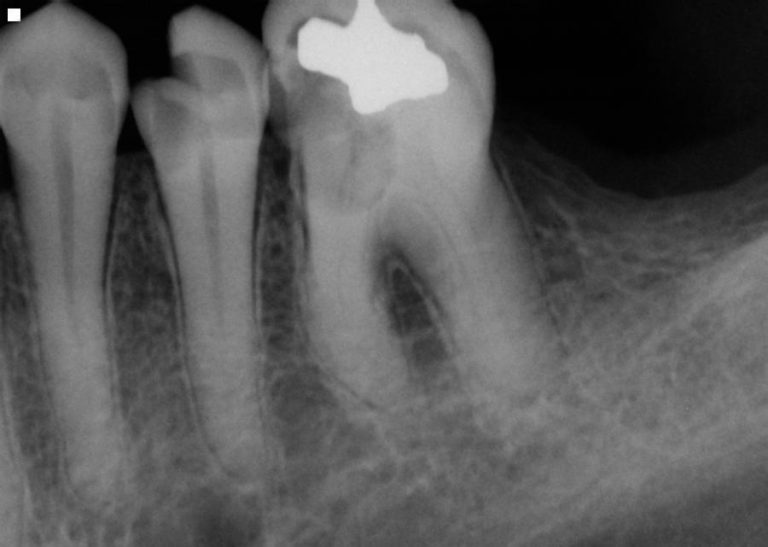Last Updated on 3 weeks by DR. ALBIN SIPES
Yes, a bad root canal can cause a sinus infection due to the proximity of the roots to the sinus cavities. A root canal treatment involves removing infected pulp from the tooth, but if the procedure is not performed correctly or the infection is not completely eliminated, it can spread to the sinuses, leading to a sinus infection.
This can manifest as pain, pressure, and swelling in the sinus area, as well as other sinus infection symptoms like congestion and nasal discharge. Proper diagnosis and treatment by a dentist or endodontist are crucial to avoid complications and ensure proper healing.

Credit: lakefrontfamilydentistry.com
Understanding The Connection Between Root Canals And Sinus Infections
Understanding the connection between root canals and sinus infections is crucial. Dental health has a direct impact on sinus health. When a root canal goes bad, it can lead to sinus infections. This link can be explained due to the close proximity between the roots of the upper teeth and the sinus cavities.
Infections in the teeth can spread to the sinuses, causing inflammation and discomfort. Bacteria from the infected root canal can enter the sinus cavity, leading to an infection. It is important to address any dental issues promptly to prevent complications like sinus infections.
Regular dental check-ups and maintaining good oral hygiene can help prevent root canals from causing sinus problems. So, it’s important to recognize the potential link between bad root canals and sinus infections, and take appropriate action to maintain dental and sinus health.
Signs And Symptoms Of A Sinus Infection Caused By A Bad Root Canal
Sinus infections can be caused by a bad root canal, and there are several signs and symptoms to watch out for. One common indicator is experiencing facial pain and pressure, especially around the affected tooth. Other signs include a persistent headache, nasal congestion, difficulty breathing through the nose, and a reduced sense of smell.
Some individuals may also develop a sore throat, bad breath, or a cough that worsens at night. If you notice any of these symptoms after a root canal treatment, it is important to consult with a dentist or an ear, nose, and throat specialist.
They will be able to assess the situation and recommend appropriate treatment, which may involve revisiting the root canal or addressing any underlying sinus infection. Timely intervention can help alleviate discomfort and prevent further complications.
The Role Of Bacterial Infections In Sinus Problems
A bad root canal has the potential to cause a sinus infection due to bacterial infections. Bacterial infections play a significant role in sinus problems. These infections can lead to sinus infections by spreading from the infected root canal to the sinuses.
Understanding the types of bacteria found in root canals is crucial in comprehending the connection to sinus infections. These bacteria can easily enter the sinuses, causing inflammation and infection. It is important to address any issues with root canals promptly to avoid complications, such as sinus infections.
Regular dental check-ups and proper oral hygiene can help prevent bacterial infections and subsequent sinus problems. Taking proactive measures to ensure the health of your teeth can also protect your sinuses from potential infections.
Treating Sinus Infections Caused By Bad Root Canals: Medical And Dental Approaches
Sinus infections can be caused by bad root canals, necessitating medical and dental treatments. Medical approaches to treating sinus infections include medications such as antibiotics, decongestants, and nasal sprays. These can help clear up the infection and provide relief from symptoms like congestion and pain.
In some cases, oral steroids may be prescribed to reduce inflammation in the sinus passageways. Dental procedures are also essential to address a bad root canal. This may involve re-treating the root canal to remove any infection or inflammation. In severe cases, an endodontic surgery called an apicoectomy might be necessary to remove the infected tissue from the tip of the tooth’s root.
By combining medical and dental approaches, individuals can effectively treat sinus infections caused by bad root canals, alleviating discomfort and promoting overall oral and sinus health. Prompt intervention is crucial to avoid further complications or the spread of infection.
Prevention And Maintenance: Keeping Your Sinuses And Root Canals Healthy
A bad root canal has been linked to sinus infections, making preventive measures crucial. Proper oral hygiene is essential in maintaining healthy sinuses and root canals. Regular brushing and flossing, coupled with routine dental visits, help prevent the development of infections.
When brushing, pay attention to the gumline and areas around previous root canals. Additionally, using an antimicrobial mouthwash can further aid in killing bacteria and reducing the risk of infections. If you have had a root canal in the past, be vigilant for any signs of sinusitis, such as facial pain or pressure, nasal congestion, or even headaches.
Promptly consulting with a dentist or an ent specialist is important to address any potential issues and prevent further complications. By taking proactive measures, you can maintain good dental hygiene and reduce the chances of sinus infections caused by bad root canals.
Debunking Common Myths About Root Canals And Sinus Infections
Debunking common myths about root canals and sinus infections is crucial in clarifying the facts surrounding this dental concern. Many individuals mistakenly believe that a bad root canal can cause a sinus infection, but this is not true. Addressing misconceptions about root canals and sinus infections, it is essential to note that a bad root canal cannot directly cause a sinus infection.
It is important to understand that sinus infections are typically caused by issues related to the sinuses themselves, such as inflammation or blockages. A root canal, on the other hand, aims to treat an infected tooth, removing the infected pulp and sealing the tooth to prevent further infection.
By dispelling these baseless misconceptions, patients can make informed decisions and understand the actual factors contributing to sinus infections.
Seeking Professional Help: When To Consult A Dentist Or Ent Specialist
Root canal treatments are common dental procedures, but they can sometimes lead to complications. Sinus infections, for example, could potentially result from a bad root canal. In such cases, it’s important to seek professional help from either a dentist or an ent specialist.
But how do you know when it’s time to consult these experts? Indications such as persistent pain or discomfort in the area of the root canal, swelling or redness in the face, and recurring sinus infections could all be signs that professional intervention is needed.
It’s vital to find the right healthcare professional for your situation to address any issues and prevent further complications.
Frequently Asked Questions On Can A Bad Root Canal Cause A Sinus Infection
Can A Bad Root Canal Cause A Sinus Infection?
A bad root canal can potentially lead to a sinus infection. If the infection from the root canal spreads to the surrounding tissues, it can affect the sinus cavities. This can result in sinus inflammation and cause symptoms like facial pain, pressure, and congestion.
What Are The Symptoms Of A Sinus Infection Caused By A Bad Root Canal?
Symptoms of a sinus infection caused by a bad root canal may include persistent facial pain, pressure, or tenderness; nasal congestion; discharge from the nose or down the back of the throat; headaches; and a reduced sense of smell and taste.
It is important to seek treatment if you suspect a sinus infection.
How Are Sinus Infections Related To Root Canals Treated?
Treatment for a sinus infection related to a bad root canal typically involves addressing the underlying dental issue. This may require retreatment or extraction of the affected tooth. Antibiotics and other medications may be prescribed to alleviate the infection and associated symptoms.
Consultation with a dentist or oral surgeon is recommended.
Is It Common For A Bad Root Canal To Cause A Sinus Infection?
While not extremely common, a bad root canal can potentially cause a sinus infection. It may occur if the infection spreads from the root of the tooth into the sinus cavities. Regular dental check-ups and proper oral hygiene can help prevent such complications.
Can A Sinus Infection Be Mistaken For A Bad Root Canal?
Yes, a sinus infection can sometimes be mistaken for a bad root canal. The symptoms can overlap, such as facial pain and congestion. A thorough evaluation by a dental or medical professional is crucial to accurately diagnose the underlying cause and provide appropriate treatment.
Conclusion
It is evident that a bad root canal can indeed lead to a sinus infection. The close proximity of the upper teeth roots to the sinus cavities provides a direct pathway for infection to spread. When an untreated or poorly performed root canal allows bacteria to persist and multiply, it can result in inflammation and infection that can extend to the sinuses.
Symptoms such as facial pain, pressure, congestion, and even nasal discharge may indicate this connection between a bad root canal and sinus problems. It is crucial to address any signs of infection promptly and seek professional help to ensure proper treatment.
Preventive measures, such as choosing a reputable dentist, practicing good oral hygiene, and promptly treating dental issues, are essential to reduce the risk of complications and maintain overall oral and sinus health. Remember, a healthy smile and sinus-friendly environment go hand in hand.






